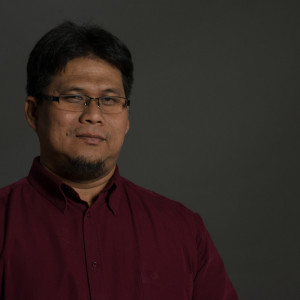Kriya Langputeh
Biography Narrative
Kriya Langputeh was born on 19 March 1971 in Satun Province, Southern Thailand. He is from a native Malay speaking ethnic group with the majority of the group living in the current three border provinces. As a Thai national, he went to Thai public school where the language of instruction was Thai while he attended a Malay language-based Islamic religious school in the evening and during public holidays. He obtained his first degree in Islamic Revealed Knowledge and Human Sciences from the International Islamic University Malaysia (IIUM Malaysia). He also obtained a Master’s Degree in Comparative Religions from Mahidol University in Bangkok in 2000. He currently lives in his hometown and has worked for the Yala Islamic University since 1999. He is also currently working on his PhD research at the University of Brunei Darussalam, funded by the Brunei Sultan Scholarship. His dissertation is titled Interreligious Dialogue: Approaches for Peacebuilding. He is also an active participant in lectures, conferences and seminars, especially in the field of Peace and Conflict Management.
Interreligious Activities and Initiatives
One day Seminar on The Role of Interreligious Dialogue for Peace in Southern Thailand Conflict

